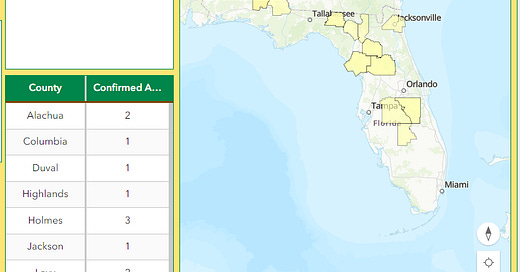Florida Eastern Equine Encephalitis cases in horses this year top cases in all of 2023
The Florida Department of Agriculture and Consumer Services (FDACS) has reported 19 Eastern Equine Encephalitis (EEE) cases in horses in 2024 to date. This is higher than the 17 equine cases reported in all of 2023.
This year, cases have been reported in the following counties: Alachua (2), Columbia (1), Duval (1), Highlands (1), Holmes (3), Jackson (1), Levy (2), Madison (2), Marion (2), Osceola (2), Polk (1) and Suwannee (1).
In addition to the horse cases, EEE has also been reported from 40 sentinel chickens, two emus and one emu flock in 25 counties in total.
Florida reports additional local dengue case in Monroe County, Travel associated Oropouche reported
No human cases of EEE have been reported.
Eastern Equine Encephalitis (EEE) is spread to horses and humans by infected mosquitoes, including several Culex species and Culiseta melanura.
EEE is one of the most dangerous mosquito-borne diseases in the U.S. with a 90 percent fatality rate among horses that become ill and a 33 percent fatality rate among humans who become ill.
Subscribe to Outbreak News TV on YouTube
In horses, the virus causes inflammation or swelling of the brain and spinal cord. General symptoms include central nervous system signs such as: head pressing, convulsions, lack of response to facial stimulation, fever above 103 degrees, ataxia, paralysis, anorexia, depression and stupor. Other symptoms may include irregular gait, teeth grinding, in-coordination, circling, and staggering. All symptoms may not be exhibited by an infected horse.






